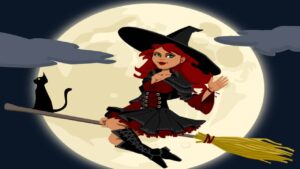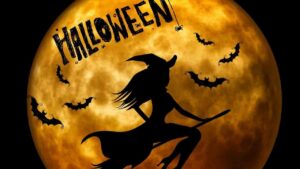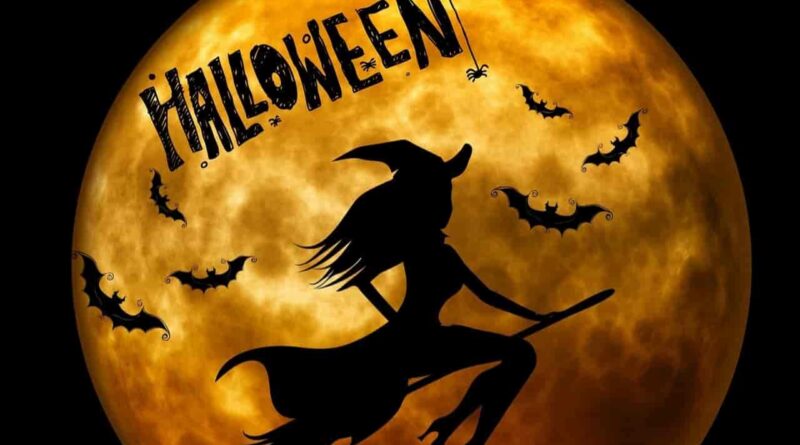History of Halloween: The Enigmatic Origins of Halloween: Unraveling Amazing 21 Mysterious History
History of Halloween: The Enigmatic Origins of Halloween: Unraveling Amazing 21 Mysterious History
Halloween’s Enigmatic History

History of Halloween
The Enigmatic Origins of Halloween: Unraveling the Mysterious History
Introduction: Unmasking the Origins of Halloween
Halloween celebrated on the eve of October 31st, is a captivating holiday filled with spooky costumes, ghostly tales, and delightful treats. But have you ever wondered about the enigmatic origins of this bewitching festivity? Delve into the mysterious history of Halloween as we unearth its ancient roots and evolution over the centuries.
History of Halloween: 1. Ancient Celtic Beginnings: Samhain, the Original Halloween
Halloween finds its earliest roots in the ancient Celtic festival of Samhain, originating over 2,000 years ago in what is now present-day Ireland, the United Kingdom, and northern France. Marking the end of the harvest season and the beginning of winter, Samhain was a significant time for the Celts to honour their deceased ancestors and welcome the darker half of the year.
2. History of Halloween: The Ghostly Influence of Roman Traditions
During the first century A.D., the Roman Empire conquered Celtic territories, and as a result, Samhain merged with two Roman festivals – Feralia, a day to remember the dead, and Pomona, dedicated to the Roman goddess of fruit and trees. These incorporations introduced elements of divination, apple bobbing, and nut-cracking, which still hold a place in modern Halloween festivities.
History of Halloween: 3. Christian Influence: All Hallows’ Eve
In the 7th century, the Catholic Church sought to replace pagan celebrations with Christian ones, leading to the establishment of All Hallows’ Eve, a day to honour saints and martyrs. This event took place on November 1st, alongside All Saints’ Day, incorporating some traditions from Samhain, such as bonfires and wearing costumes to ward off evil spirits.
History of Halloween: 4. Merging Cultures: Immigrants and the Birth of American Halloween
In the 19th century, Irish immigrants brought Halloween customs to North America, where various traditions from different cultures converged. In the melting pot of American society, Halloween evolved into a community-centred holiday, with activities like trick-or-treating gaining popularity.
5.History of Halloween: Commercialization and Modern Halloween
The early 20th century saw Halloween becoming a more commercialized and secular celebration in the United States, with the emergence of mass-produced costumes, decorations, and greeting cards. Over time, Halloween’s popularity spread globally, with each culture adopting and adding its unique touch to the festivities.
6. Global Halloween Traditions: Diverse Celebrations
As Halloween transcended borders, it fused with local customs, resulting in a rich tapestry of global celebrations. From the Dia de los Muertos in Mexico to the Obon Festival in Japan, different regions now embrace Halloween with their distinctive cultural flair, further enhancing the holiday’s diversity and significance.
Carrying the Torch of an Ancient Legacy
As we gather for modern-day Halloween celebrations, let us remember that beneath the costume-clad revelry and pumpkin-spiced delights lies an ancient legacy, intertwining centuries of history and culture. The bewitching charm of Halloween lies not only in its mysterious origins but in the way it continues to adapt and captivate the hearts of people worldwide, carrying the torch of its past into an uncertain, yet enchanting future.
History of Halloween: 7. Symbolism and Traditions: Unmasking Halloween’s Core Elements
Halloween has acquired a wealth of iconic symbols and traditions that play a pivotal role in its celebrations. These enduring elements add depth and fascination to the holiday, making it a unique experience for everyone involved.
a. Jack-o’-Lanterns: Warding off Malevolent Spirits
The ubiquitous Jack-o’-Lantern, carved from pumpkins or turnips, is a quintessential Halloween symbol. Its origins can be traced back to Irish folklore, where the tale of “Stingy Jack” gave rise to the tradition. Legend has it that Jack, a cunning trickster, was denied entry to both heaven and hell, forever wandering the earth with only a burning coal inside a hollowed-out turnip to light his way. The Irish believed that placing these eerie lanterns outside their homes would keep Jack and other malevolent spirits at bay.
b. Trick-or-Treating: A Harvest Tradition Reinvented
The practice of trick-or-treating, where children dress up in costumes and visit houses in search of treats, has become one of Halloween’s most cherished customs. Its origins can be linked to the ancient Celtic tradition of “guiding,” where people wore costumes to appease roaming spirits. In the early 20th century, the practice was revived in North America, evolving into the delightful tradition it is today.
c. Haunted Houses and Ghostly Stories: Embracing Fear and Mystery
Halloween would not be complete without its ghostly tales and haunted houses. The thrill of being scared, surrounded by eerie decor and spine-chilling narratives, has become an integral part of the holiday. From classic horror stories to modern urban legends, these spooky tales add an element of mystery and excitement to Halloween gatherings.
d. Witches, Bats, and Black Cats: Familiar Figures of the Occult
Witches, bats, and black cats have become synonymous with Halloween. These figures have deep historical ties to ancient beliefs and superstitions. Witches, for instance, harken back to the medieval European witch hunts, where they were associated with dark magic and sorcery. Meanwhile, bats and black cats were feared as companions of witches, adding an air of mystique to Halloween folklore.
8.History of Halloween: Modern Influences: Halloween in Popular Culture
Over the years, Halloween has woven itself into the fabric of popular culture, making appearances in literature, movies, TV shows, and music. Iconic characters like Dracula, Frankenstein’s monster, and the Headless Horseman continue to be resurrected in various forms, captivating new generations with their enduring appeal.

History of Halloween: 9. Halloween Around the World: Diverse Celebrations
While Halloween’s roots lie in Celtic and Christian traditions, its modern-day celebration spans the globe with unique cultural adaptations. For instance, in Mexico, the Day of the Dead (Dia de los Muertos) honours deceased loved ones with colourful altars and sugar skulls.
In Japan, the Obon Festival serves as a time to commemorate ancestors’ spirits through dance and celebration. Exploring these diverse traditions allows us to appreciate the universality of remembering the departed and embracing the mysteries of the afterlife.
Embracing the Spirit of Halloween
As the jack-o’-lanterns glow and the costumes come alive, Halloween continues to captivate our imagination with its rich history and cultural amalgamation. From its ancient Celtic beginnings to its evolution into a global phenomenon, Halloween remains a celebration of life, death, and the uncanny.
By embracing the spirit of this enchanting holiday, we honour our past, celebrate our present, and embrace the eternal allure of the unknown. So, as the moon rises on the eve of October 31st, let us indulge in the magic of Halloween and carry its timeless spirit into the future.
History of Halloween: 10. Halloween’s Impact on the Economy and Commerce
Beyond its cultural and historical significance, Halloween has become a massive economic event. With its popularity surging worldwide, industries such as retail, confectionery, and costume manufacturing eagerly anticipate the arrival of this bewitching holiday. Consumers flock to stores and online retailers to purchase costumes, decorations, candy, and party supplies, boosting the economy during the Halloween season.
History of Halloween: 11. Environmental Concerns and Halloween
As Halloween continues to grow in popularity, concerns about its environmental impact have also arisen. The production of disposable costumes, single-use decorations, and excessive candy packaging can generate a significant amount of waste. In response, many individuals and communities have begun exploring eco-friendly alternatives, opting for sustainable decorations, homemade costumes, and eco-conscious treats.
History of Halloween: 12. Halloween and Charity: A Season of Giving
While Halloween may be associated with spooky fun, it has also become an opportunity for charitable initiatives. Many communities organize Halloween-themed fundraising events, encouraging participants to donate to various causes while enjoying the festivities. From trick-or-treating for UNICEF campaigns to charity haunted houses, the spirit of giving blends seamlessly with the Halloween season.
History of Halloween: 13. Controversies and Halloween
In recent years, Halloween has faced some controversies surrounding cultural appropriation and offensive costumes. Some costumes perpetuate harmful stereotypes or trivialize certain cultures, leading to important discussions about respecting and honouring traditions. As Halloween evolves, individuals need to be mindful of their costume choices, promoting inclusivity and cultural sensitivity.
History of Halloween: 14. Halloween in the Digital Age: Virtual Celebrations
The advent of technology and social media has brought about a new dimension to Halloween celebrations. Virtual costume parties, online haunted house experiences, and social media challenges have allowed people from different parts of the world to come together and celebrate Halloween in creative and innovative ways, even during challenging times.
History of Halloween: 15. Preserving Halloween’s Traditions: Family and Community Bonding
Amidst the ever-changing world, Halloween serves as a reminder of the importance of family and community bonding. Many families have longstanding traditions of pumpkin carving, crafting decorations, or hosting neighbourhood parties. These shared experiences strengthen relationships, fostering a sense of belonging and nostalgia for all generations involved.
Conclusion: Embracing the Magic of Halloween Through the Ages
From its ancient Celtic origins to its modern-day global celebration, Halloween has traversed time with enduring allure. As we continue to enjoy this captivating holiday, let us cherish its rich history, embrace it’s evolving customs, and approach it with mindfulness and respect for its diverse cultural influences.
Halloween unites us in a shared fascination with the mysterious and fantastical, reminding us that sometimes, the most magical things in life are the ones that cannot be easily explained. As darkness falls on All Hallows’ Eve, let us revel in the enchantment of Halloween and the eternal magic it brings into our lives.
History of Halloween: 16. The Evolution of Halloween Costumes: From Spooky to Trendy
Halloween costumes have evolved significantly over time, reflecting the changing trends and pop culture influences. What once primarily featured spooky creatures like ghosts and witches has now expanded to include an extensive array of options, ranging from superheroes and movie characters to internet memes and viral sensations. The creativity and diversity of costumes today add a vibrant and dynamic dimension to Halloween celebrations.
History of Halloween: 17. Halloween in Literature and Art: Inspiring Creativity
Halloween’s mysterious and otherworldly elements have inspired countless writers and artists throughout history. From classic horror literature like Edgar Allan Poe’s “The Raven” to spooky illustrations by artists like Edward Gorey, Halloween’s motifs have woven their way into the fabric of literary and artistic works, leaving an indelible mark on the world of creativity.
History of Halloween: 18. Halloween in Film: A Haunting Cinematic Legacy
Halloween’s eerie ambience has found a perfect home in the realm of cinema. The horror genre, in particular, has birthed iconic franchises like “Halloween,” “Friday the 13th,” and “A Nightmare on Elm Street,” becoming synonymous with the holiday itself. These films have left an everlasting impact on popular culture, introducing memorable characters like Michael Myers and Freddy Krueger that continue to haunt audiences to this day.
History of Halloween: 19. Halloween Celebrations in Schools and Communities
Halloween’s appeal extends beyond individual households, with schools and communities organizing a variety of events and activities. Pumpkin carving contests, costume parades, and spooky storytelling sessions provide a sense of camaraderie and excitement for children and adults alike. These communal celebrations foster a spirit of togetherness and playfulness within neighbourhoods and educational institutions.
History of Halloween: 20. Future Trends and Challenges of Halloween
As Halloween enters the future, it is likely to continue adapting to changing times and cultural landscapes. The rise of augmented reality and virtual reality technologies may revolutionize Halloween experiences, providing immersive and interactive ways to celebrate. Furthermore, ongoing discussions about sustainability, inclusivity, and cultural sensitivity will influence the way Halloween is approached, encouraging a more thoughtful and respectful holiday for everyone.
History of Halloween: 21. Halloween: A Time for Personal Transformation
Beyond the costumes and decorations, Halloween holds a deeper significance for many individuals. It offers a unique opportunity for personal transformation and self-expression, as people step into the shoes of fantastical characters or embrace their shadow selves. Halloween encourages us to explore facets of our personalities that we may not usually embody, fostering growth and introspection in the process.
Conclusion: The Enduring Magic of Halloween, History of Halloween:
As the shadows lengthen and the autumn leaves rustle, Halloween emerges with its captivating allure once more. From its ancient beginnings to its modern-day extravaganza, Halloween’s magic endures, reminding us of the beauty in embracing the unknown and celebrating the richness of cultural heritage.
As we gather for another All Hallows’ Eve, let us revel in the enchantment of Halloween, embracing the past, present, and future it embodies, and continue to pass down its timeless traditions for generations to come. Happy Halloween!




